Martin McGuinness acted 'with integrity' says former PSNI chief constable
- Published
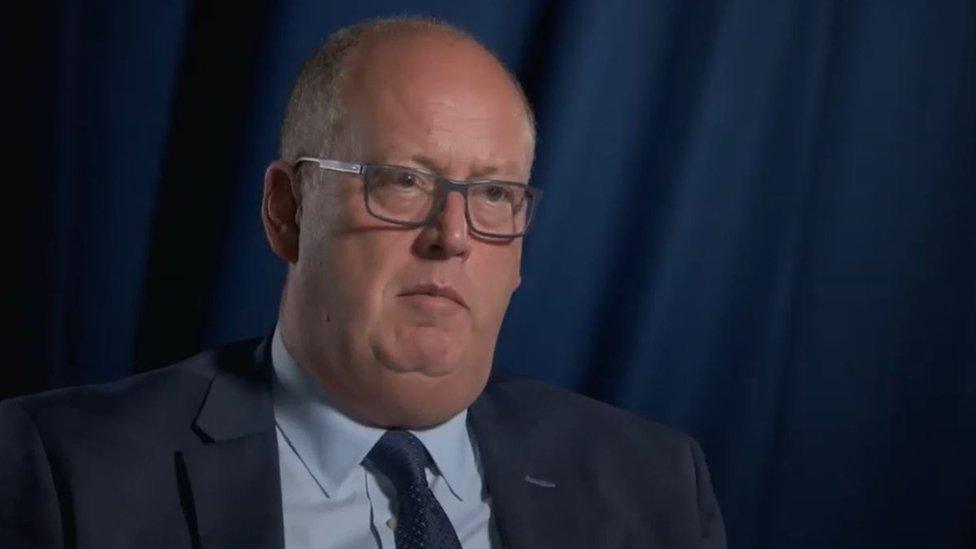
Sir George Hamilton served as PSNI chief constable from 2014 to 2019
A former Police Service of Northern Ireland (PSNI) chief constable has said Martin McGuinness had acted "with integrity" and was "a man I could do business with".
Sir George Hamilton was speaking for a BBC film on 20 years of the PSNI.
He said the former deputy first minister was "committed to making this a better place".
But he said that going to Mr McGuinness's funeral while still in post was a "dilemma".
Mr McGuinness, a former IRA leader and a senior member of Sinn Féin, died in 2017, a year after stepping down as deputy first minister.
Speaking for the documentary, Twenty Years on the Frontline, Sir George, who served as the PSNI's chief constable between 2014 and 2019, recalled how he regarded working with Mr McGuinness.
"He acted with integrity, he acted in a common sense way, in a pragmatic way," he said.
"When he was going to have to do or say something that was going to be difficult for me, he would've given me prior notice - not seeking my permission, but he would've had the courtesy of saying 'This is what I'm going to be doing and saying publicly', on most occasions.
"And he was a man, therefore, that I could do business with."
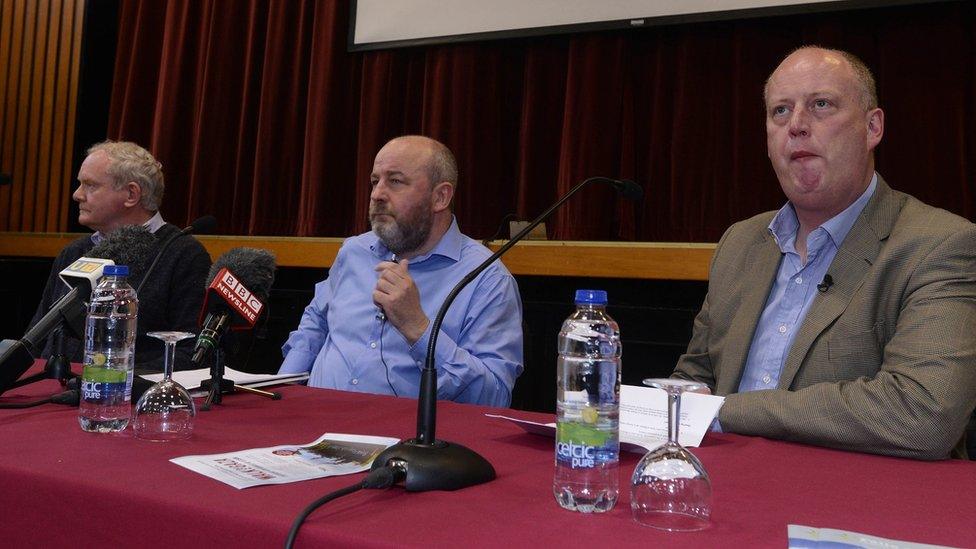
George Hamilton, right, and Martin McGuinness (left) with BBC News NI's former security editor Brian Rowan at an event in 2015
When asked by presenter Stephen Nolan about attending Mr McGuinness's funeral, Mr Hamilton said: "I remember looking at his coffin with the tricolour resting on it and thinking of the coffins that I had carried and walked behind because of the actions of the IRA of which he was a very prominent member."
He said the pair had spoken about their hopes for the peace process shortly before Mr McGuinness's death.
"He and I had conversations, when he knew how ill he was, about the work that still needed to be done, and I'm not talking about his political pursuit of a united Ireland, I'm talking about firming up the peace process and dealing with the legacy issues.
"Regardless of his past, and you can't disregard it, I was convinced that, in the here and now, this was a person who was committed to making this a better place."
The film, which charts many of the major events which led up to the formation of the PSNI, spoke to police officers who have lost family members, colleagues and suffered injuries as a result of their service.
In November 2001, under policing reforms, the Royal Ulster Constabulary (RUC), which was overwhelmingly Protestant, was renamed the PSNI.
One of the main aims of police reform was to build broader community support and increase the number of Catholic officers.
However figures last December revealed an ongoing recruitment problem, with 24% of officers recruited in 2020 being Catholic.
As well as Mr Hamilton, the film also features interviews with Chief Constable Simon Byrne and former chief constables Sir Ronnie Flanagan and Sir Hugh Orde.
Simon Byrne spoke about the fallout over the funeral of senior republican Bobby Storey, saying he would have done some things differently but that the PSNI's hands were tied.
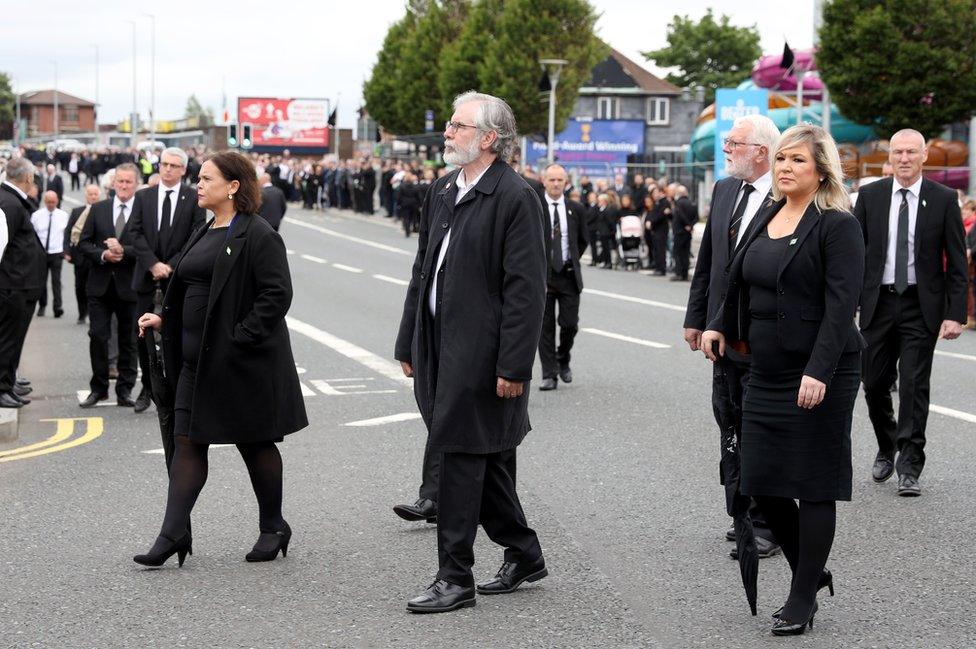
Mary Lou McDonald, Gerry Adams and Michelle O'Neill were among the senior Sinn Féin members at Bobby Storey's funeral
He faced calls to resign after prosecutors opted not to charge anyone over the funeral in June 2020.
It attracted 2,000 mourners at a time when Covid restrictions were in place.
"I think if I was living it again, I would like to have seen more police in and around the funeral, to show a presence, to show that we were gathering evidence.
"But, at the end of the day, our hands were tied in terms of tactics that were legitimate and lawful because of the way the law was constructed."
He added: "I've seen plenty of people saying to me we should've arrested people, we should've stopped them but this wasn't an unlawful processions, this was a funeral."
Mr Byrne said the intensity of the chief constable's role in Northern Ireland, particularly in the wake of high-profile incidents such as Mr Storey's funeral, was "unique".
"Sometimes when the pressure's up and you go home and have to deal with those issues with your family... about some of the criticisms - is it about me the person or me the role? - it's not nice and I couldn't pretend that it is.
"It feels like venom and intensity - it is hard when it's coming at you from all angles."
He added: "I have been approached when out and about and people will say things to you - and you recognise that's part of the job, but it wouldn't be an experience anywhere else I've worked."
Twenty Years on the Frontline airs on BBC One Northern Ireland on Monday 24 January at 22:35 GMT
Related topics
- Published2 November 2021
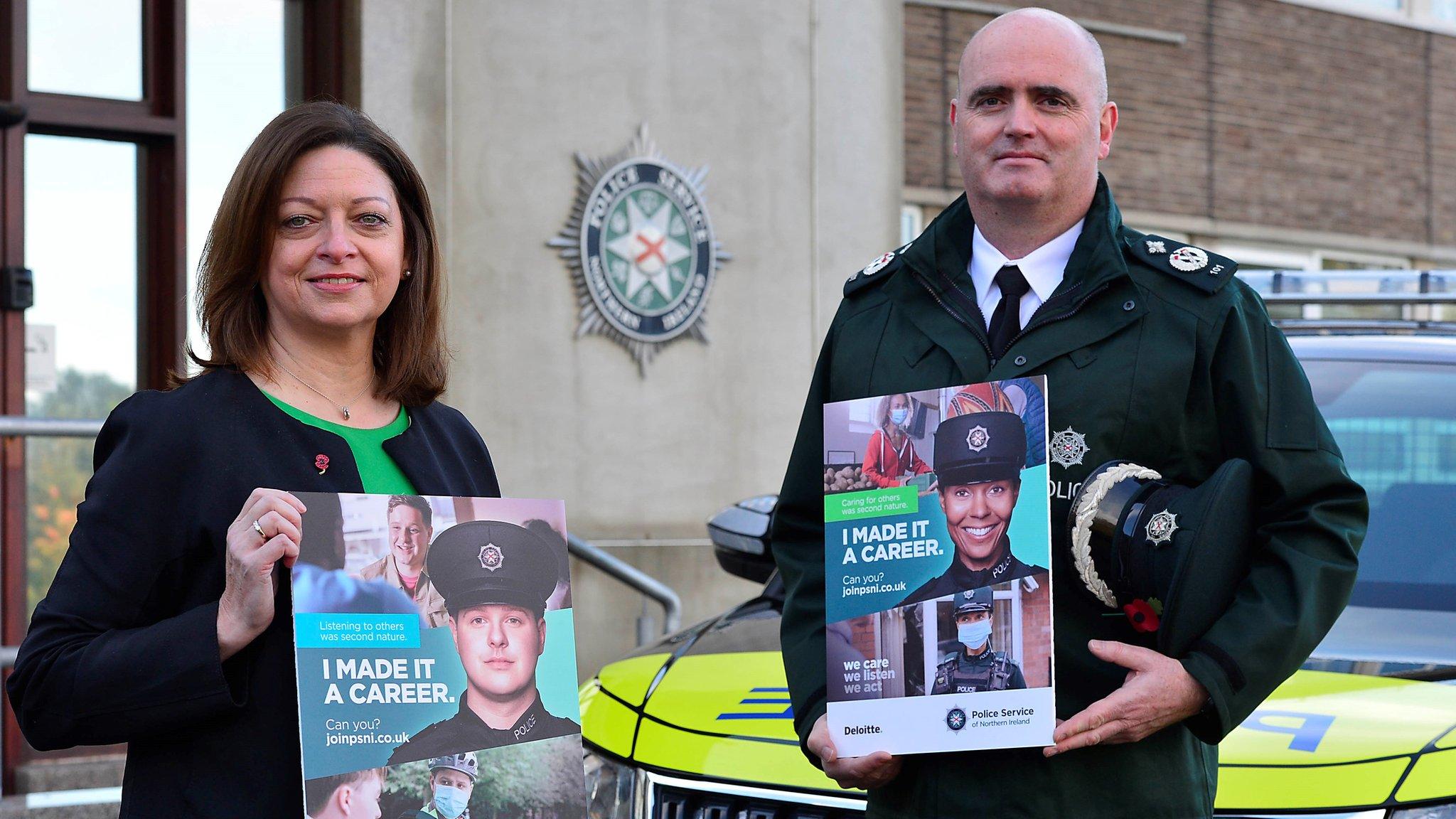
- Published7 June 2019
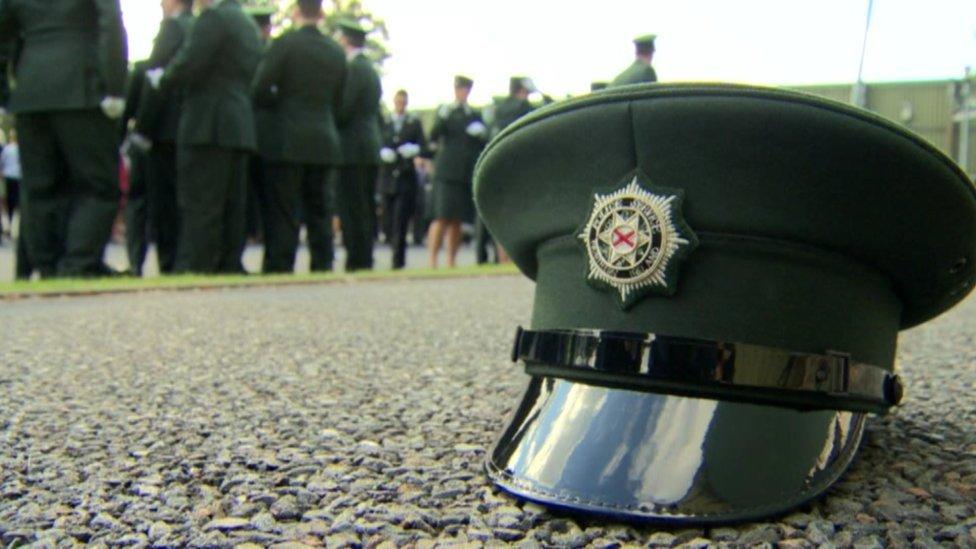
- Published2 February 2020
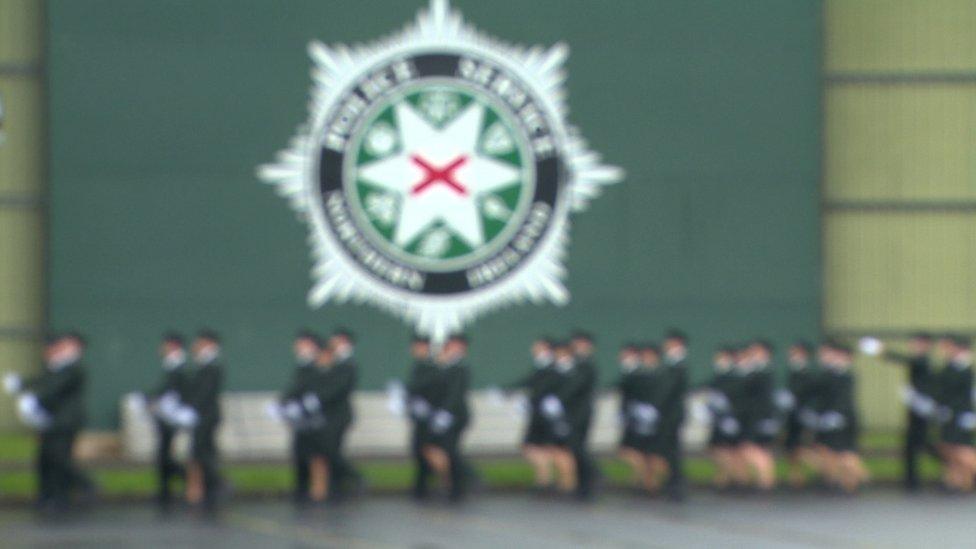
- Published17 December 2018
